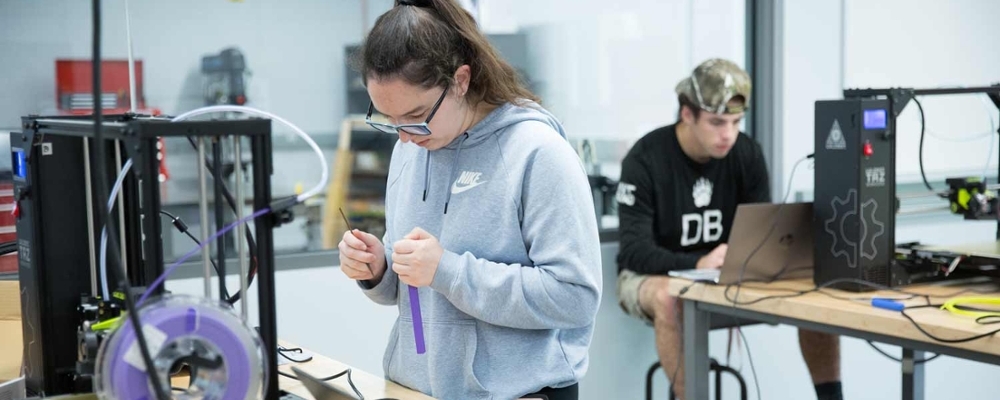B.S.E. Accreditation Information

 The Bachelor of Science in Engineering (B.S.E.) was established in 2017 and is accredited by the Engineering Accreditation Commission of ABET, www.abet.org, a nonprofit, non-governmental organization that accredits college and university programs in the disciplines of applied and natural science, computing, engineering and engineering technology at the associate, bachelor and master degree levels. ABET accreditation is designed to assure students, employers and society that a program meets the quality standards that produce graduates prepared to enter a global workforce.
The Bachelor of Science in Engineering (B.S.E.) was established in 2017 and is accredited by the Engineering Accreditation Commission of ABET, www.abet.org, a nonprofit, non-governmental organization that accredits college and university programs in the disciplines of applied and natural science, computing, engineering and engineering technology at the associate, bachelor and master degree levels. ABET accreditation is designed to assure students, employers and society that a program meets the quality standards that produce graduates prepared to enter a global workforce.
Cornell College Mission Statement
Cornell College offers an innovative and rigorous learning community where faculty and staff collaborate with students to develop the intellectual curiosity, creativity, and moral courage necessary for a lifetime of learning and engaged citizenship.
Engineering Program Mission Statement
We create a collaborative community in which faculty and students experience the satisfaction and practical power of doing engineering. Students learn to use fundamental principles to explain natural processes and their technological applications through active engagement in the classroom and laboratory. These experiences also develop research, communication, and teamwork skills essential to the practice of engineering.
Engineering program educational objectives
Cornell College’s Engineering B.S.E. degree program is designed to prepare students for work in the engineering industry, for graduate school in engineering fields, or for other pursuits which require the understanding of engineering concepts and processes. We expect graduates to demonstrate the following skills and abilities within five years of graduation:
- Initiate and develop innovative solutions to complex problems, using both their engineering and liberal arts education;
- Communicate and collaborate effectively with people from diverse backgrounds, in both leadership and support roles;
- Demonstrate curiosity when encountering new situations and strive for excellence in the engineering profession;
- Recognize professional standards and ethics, act with integrity with others, and contribute to their communities and the larger world.
Student outcomes
In order to achieve the Education Objectives of the Cornell College Engineering B.S.E. degree program described above, students must develop a variety of skills and abilities, which are described here as student learning outcomes. In Spring 2018, the Department of Physics and Engineering adopted the ABET student learning outcomes for the Engineering (B.S.E.) program. While working to complete Cornell College’s Engineering B.S.E. degree, students will develop:
- An ability to identify, formulate, and solve complex engineering problems by applying principles of engineering, science, and mathematics.
- An ability to apply engineering design to produce solutions that meet specified needs with consideration of public health, safety, and welfare, as well as global, cultural, social, environmental, and economic factors.
- An ability to communicate effectively with a range of audiences.
- An ability to recognize ethical and professional responsibilities in engineering situations and make informed judgments, which must consider the impact of engineering solutions in global, economic, environmental, and societal contexts.
- An ability to function effectively on a team whose members together provide leadership, create a collaborative and inclusive environment, establish goals, plan tasks, and meet objectives.
- An ability to develop and conduct appropriate experimentation, analyze and interpret data, and use engineering judgment to draw conclusions.
- An ability to acquire and apply new knowledge as needed, using appropriate learning strategies.
